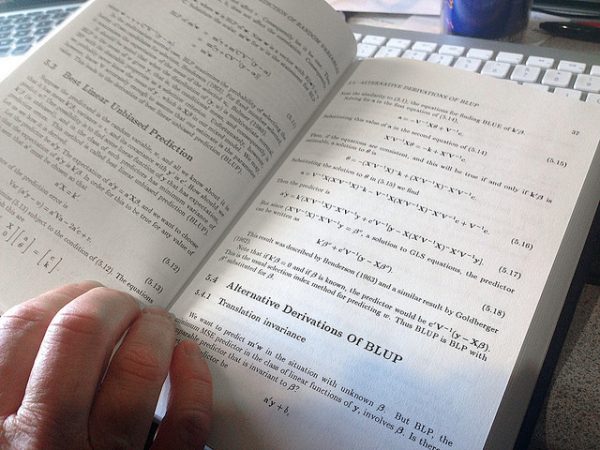
High school math teachers may have a new answer to the perpetual student question, “Why do we have to learn this?” Researchers who study education stratification know that math serves as a gatekeeper to advanced high school degrees, selective colleges, and sought-after majors, as all of these require advanced math courses or math test scores. In new research, Daniel Douglas and Paul Attewell test whether math achievement still matters for inequality when other demographic factors are taken into account, as well as whether the emphasis the education system places on math really reflects the needs of the workforce.
First, Douglas and Attewell find that math achievement does not simply reflect mastery of skills students will need in prestigious jobs. An analysis of data from the Bureau of Labor Statistics O*net program and the Occupational Employment Statistics found that 81% of all U.S. workers and 62% of all U.S. workers in jobs requiring a bachelors degree never use advanced math or statistics beyond simple algebra or formulas. Less than 3% of Americans said that their jobs require more math than knowing how to calculate the square footage of a house. In fact, individuals with master’s degrees or doctorates often used less math or less advanced math than individuals with bachelor’s degrees. But importantly, math achievement does still predict college attendance and degree attainment, even for students of the same race or class. This effect of math achievement was most significant for students with higher socioeconomic status.
The fact that knowing advanced math mattered for college attainment, but not for the actual workplace, indicates that the math education system is doing more than simply giving individuals the skills they will need in advanced jobs or sorting which students are most qualified for the most prestigious jobs. Instead, math achievement allows students to collect certain credentials, such as a degree from a selective college or an advanced high school diploma, and the gatekeeping function of math achievement keeps those credentials rare (and therefore valuable). So students may not need to be able to do the math that they learn in high school, but not achieving in high school math can limit opportunities for the rest of their lives.

Comments